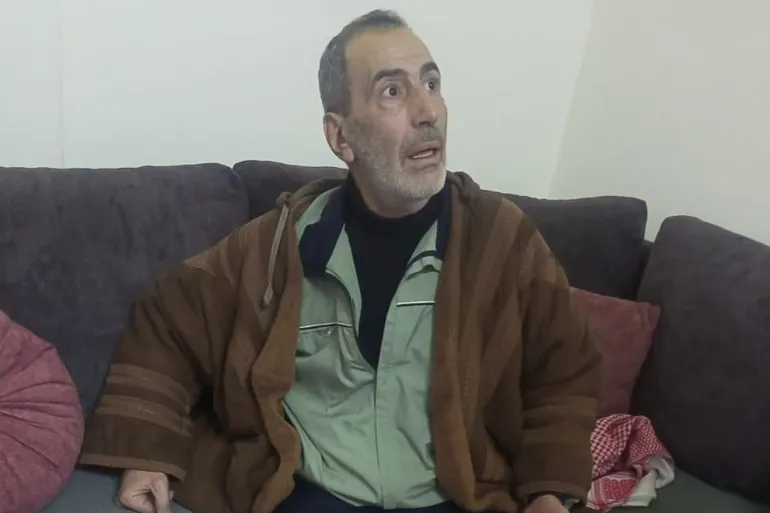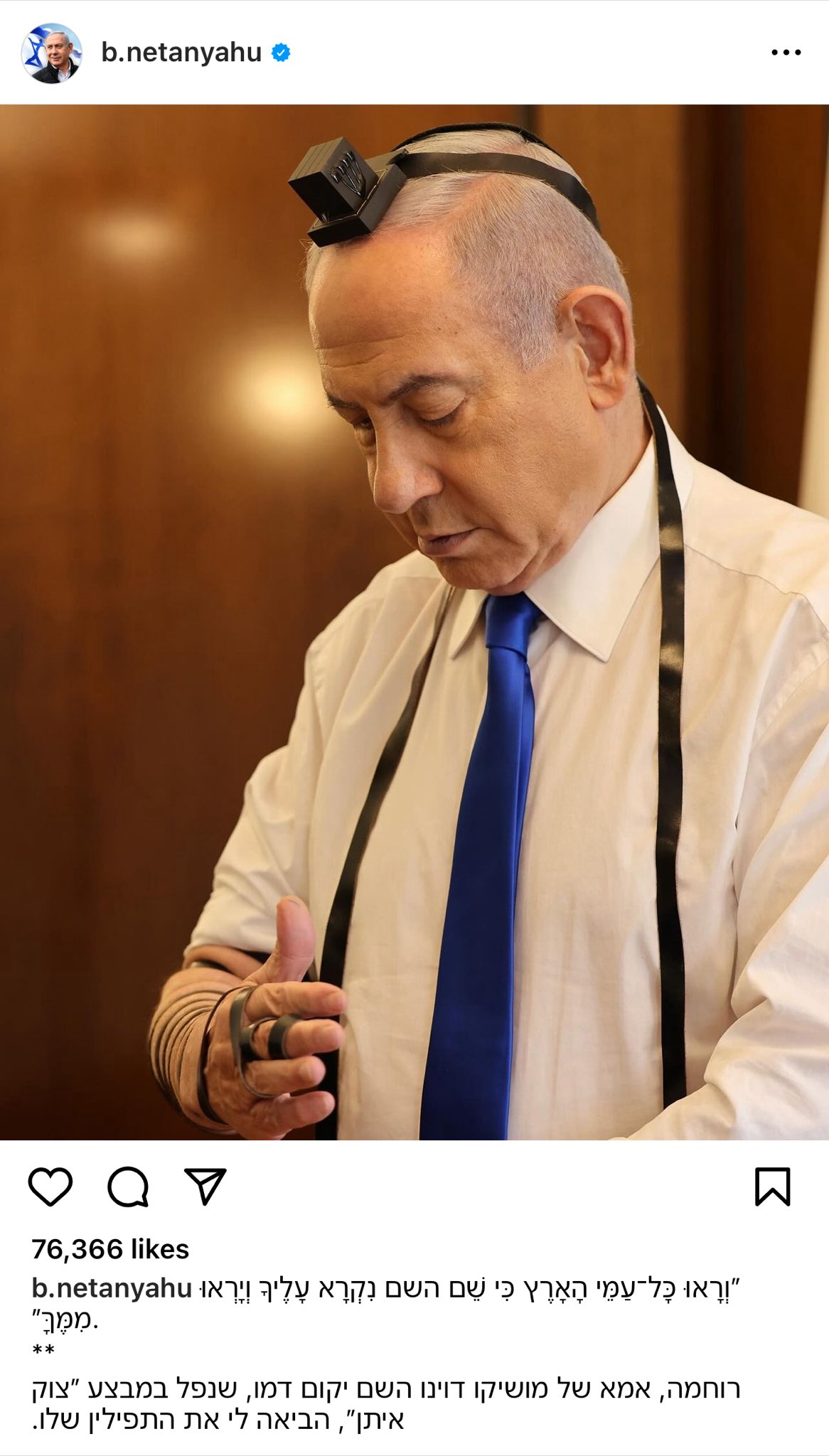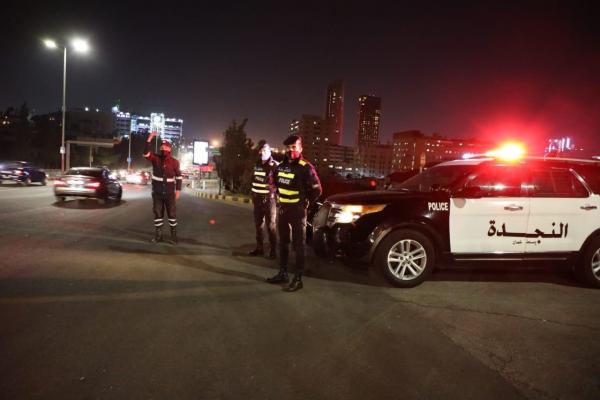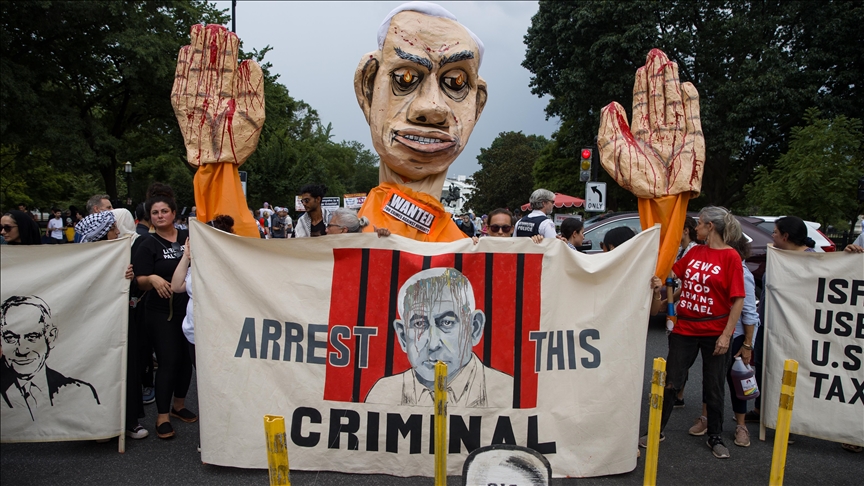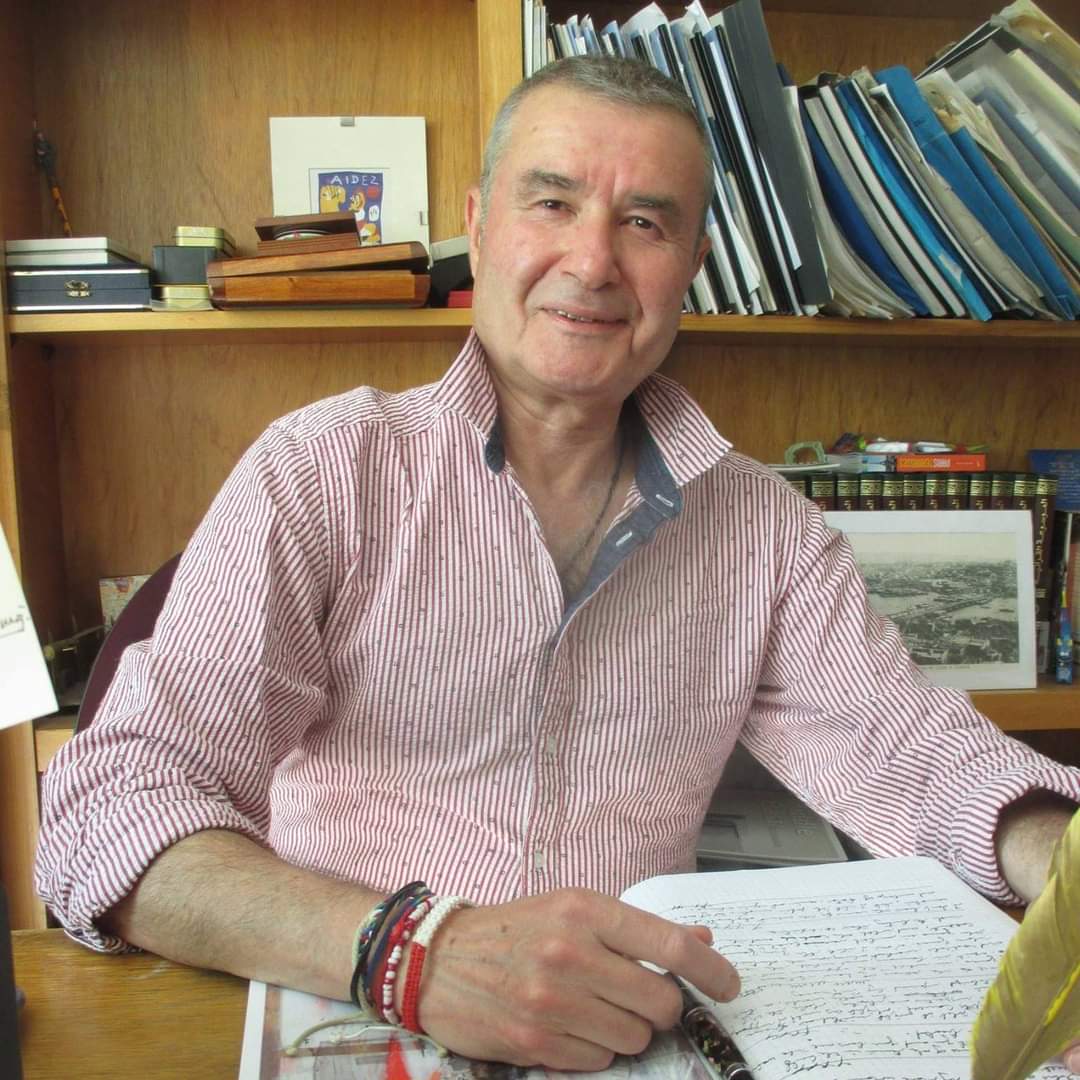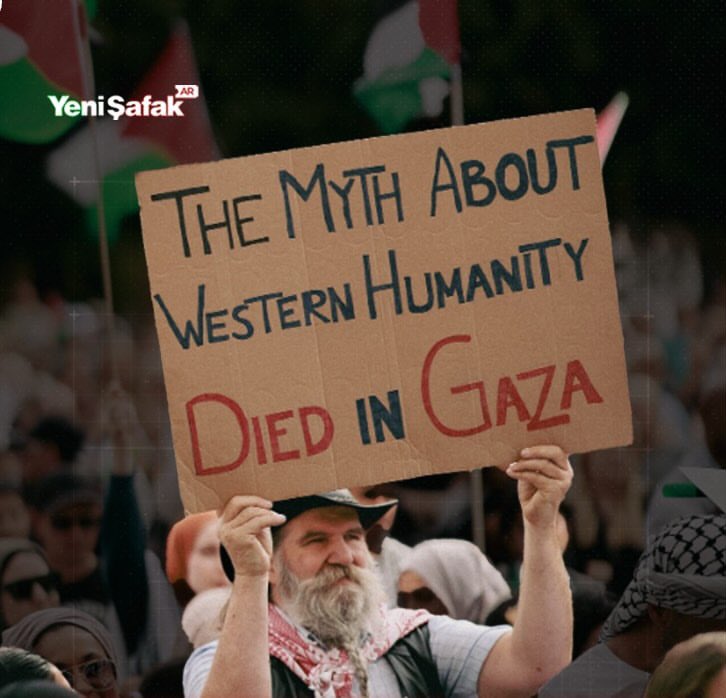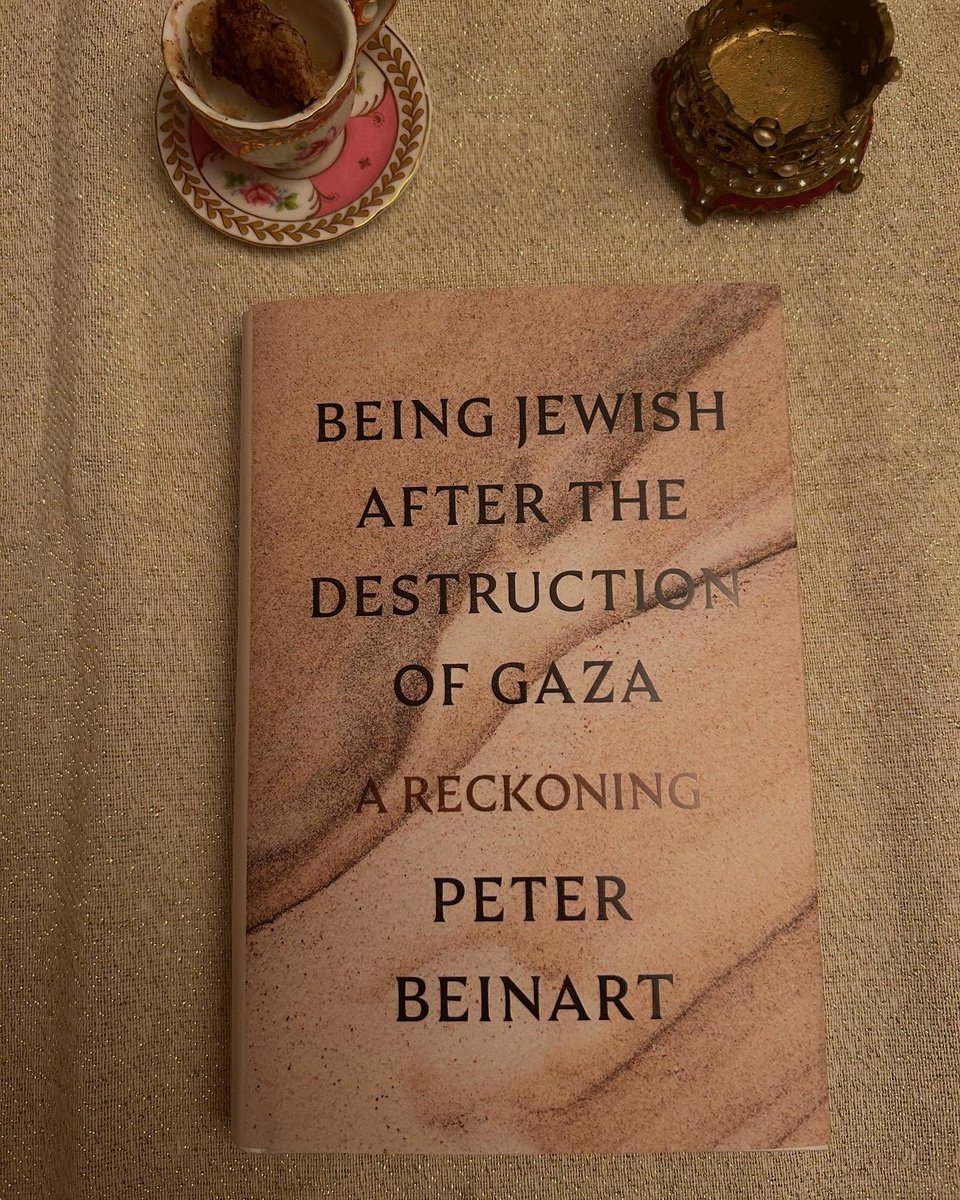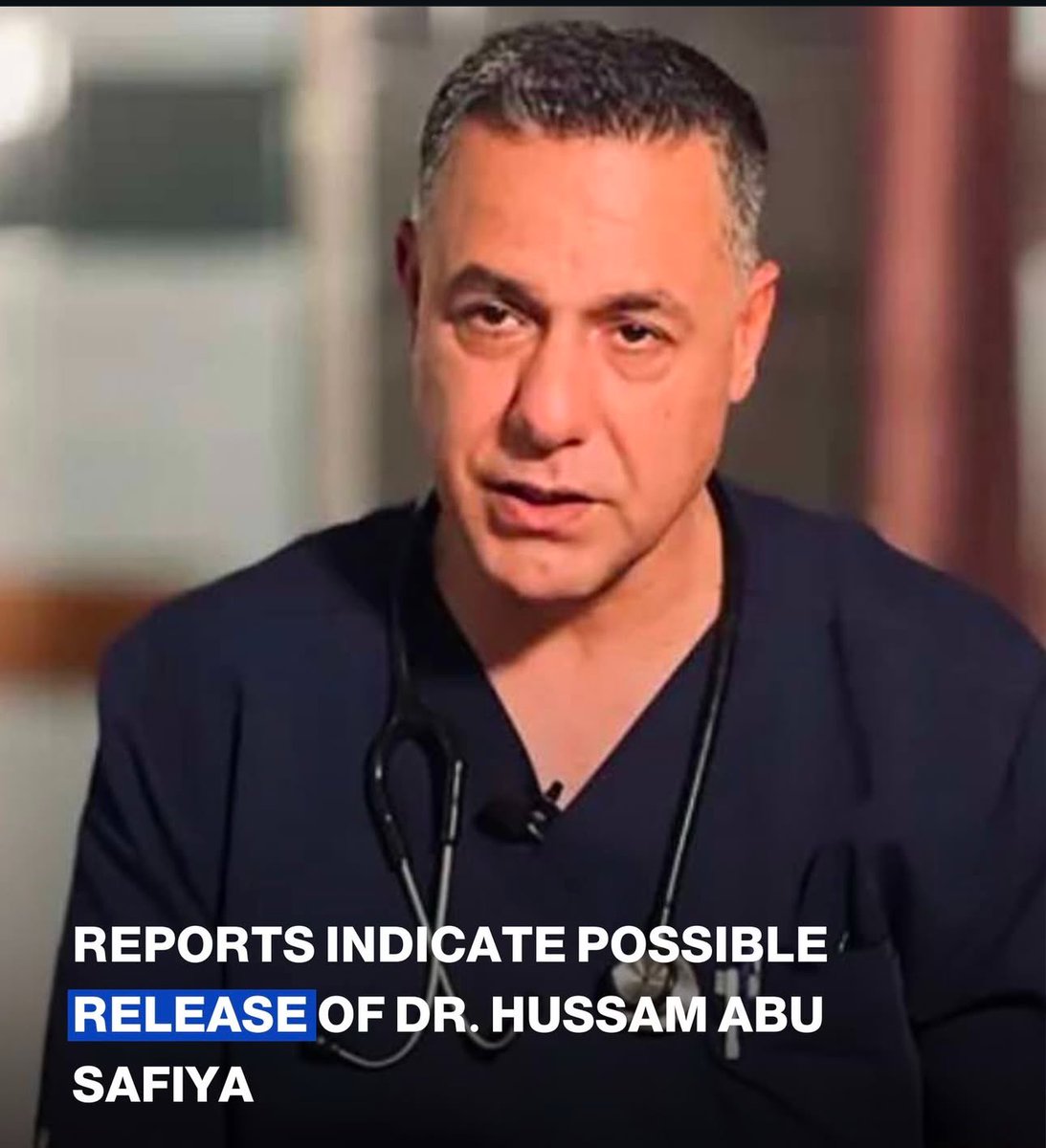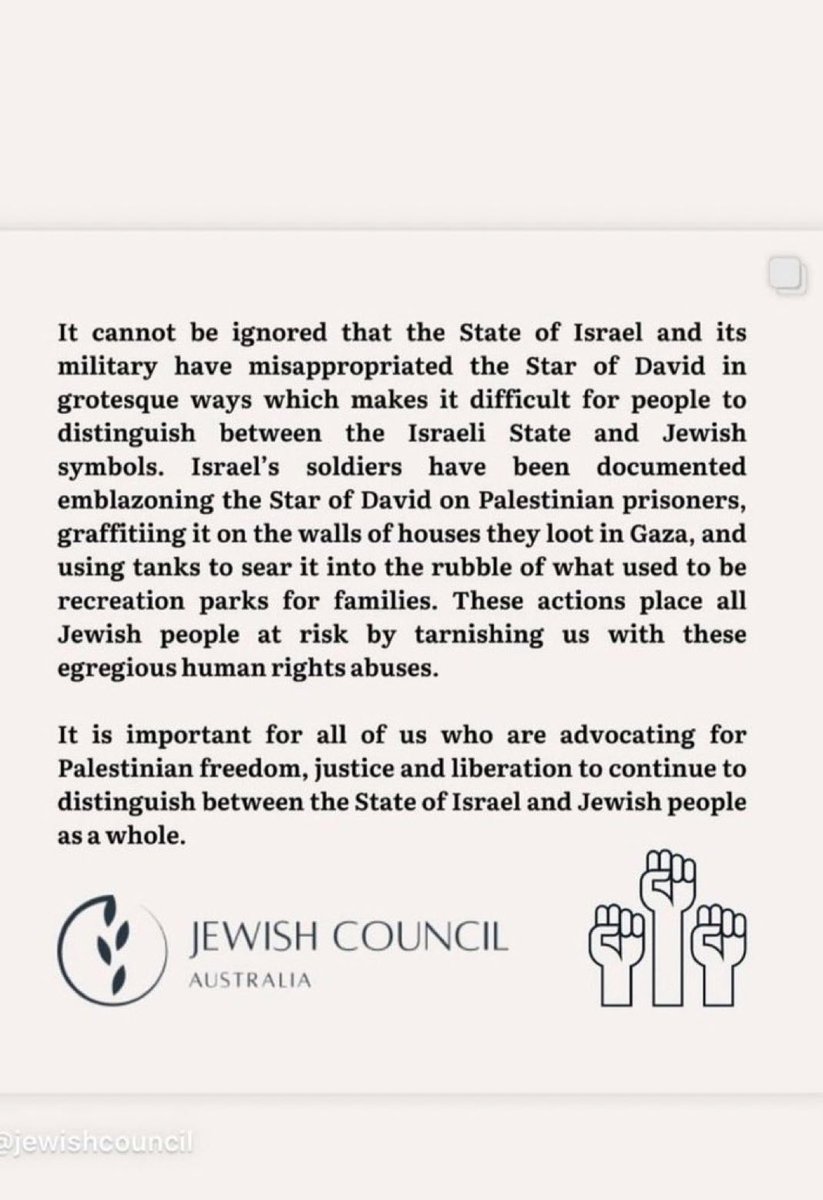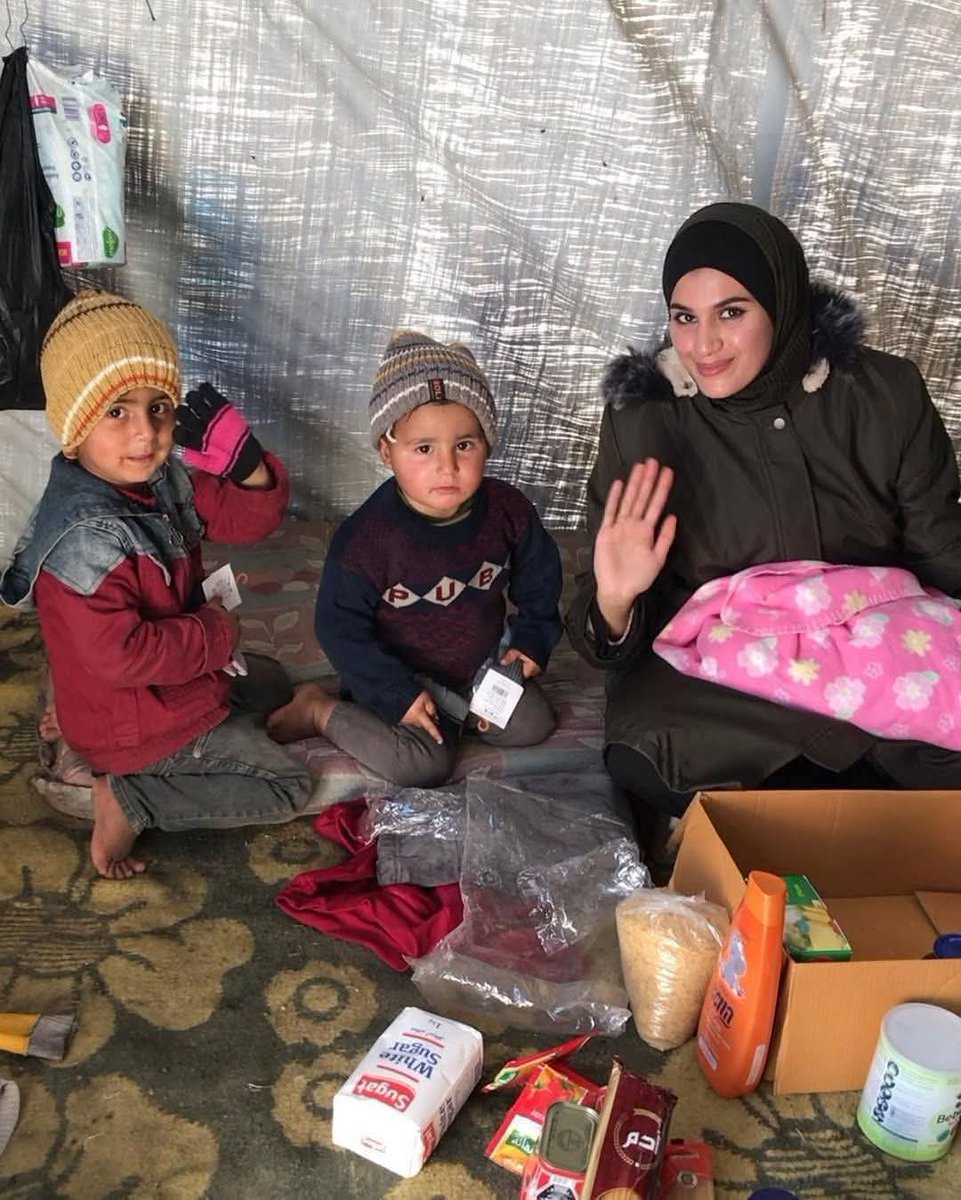After 42 Years Jordanian Freed From Syria Prisons
The Jerusalemite Walid Barakat, who hails from the village of Nabi Samouil, northwest of occupied Jerusalem, was released and reunited with his family in Jordan after entering prison life in Syria as a young man at the age of 26.
Barakat said that “life was written for him several times in prison after he was close to death,” and that he learned of his life sentence after 30 years of imprisonment.
Barakat’s nephew pointed out that “his uncle arrived at the border physically exhausted after the opposition forces took him there immediately after he revealed his nationality,” adding “Walid has a large family in Jordan that will embrace him forever after years of forced absence from them.”
He added that “Walid spent 14 years in solitary confinement, and that the family did not know exactly where he was, whether he was detained in Syria, Turkey or Lebanon, until his name was listed in 1996 among the Palestinian detainees in Syrian prisons in a newspaper through the efforts made by international human rights organizations.”
He said, “the family started communicating with him through some Syrians who contact him by phone, and they told him of our news and they conveyed his news to us.”
Walid was arrested by Syrian forces at the Damascus airport on 31 October, 1982, and was subjected to solitary confinement in Tadmur prison for many years, where he experienced the worst forms of torture, before the opposition forces opened the prison doors and freed the prisoners and he immediately headed towards the border with Jordan, according to his family.
The family added that “Walid never saw sunlight during his solitary confinement, and inside the prisons he became a number that was called out like the rest of the prisoners.”
His relatives said, “the only meeting that brought him together with one of his family members was in 2005 when Hatem’s father and sister traveled to Syria and met him in Mezzeh prison in Damascus, and no one was able to visit him after that.”
On 27 November, the Syrian armed opposition factions launched their “Deterrence of Aggression” operation, starting from Idlib and Aleppo, then Hama and Homs, arriving in Damascus, which they entered at dawn last Sunday, announcing the fall of the Assad regime according to the Quds News Network.

